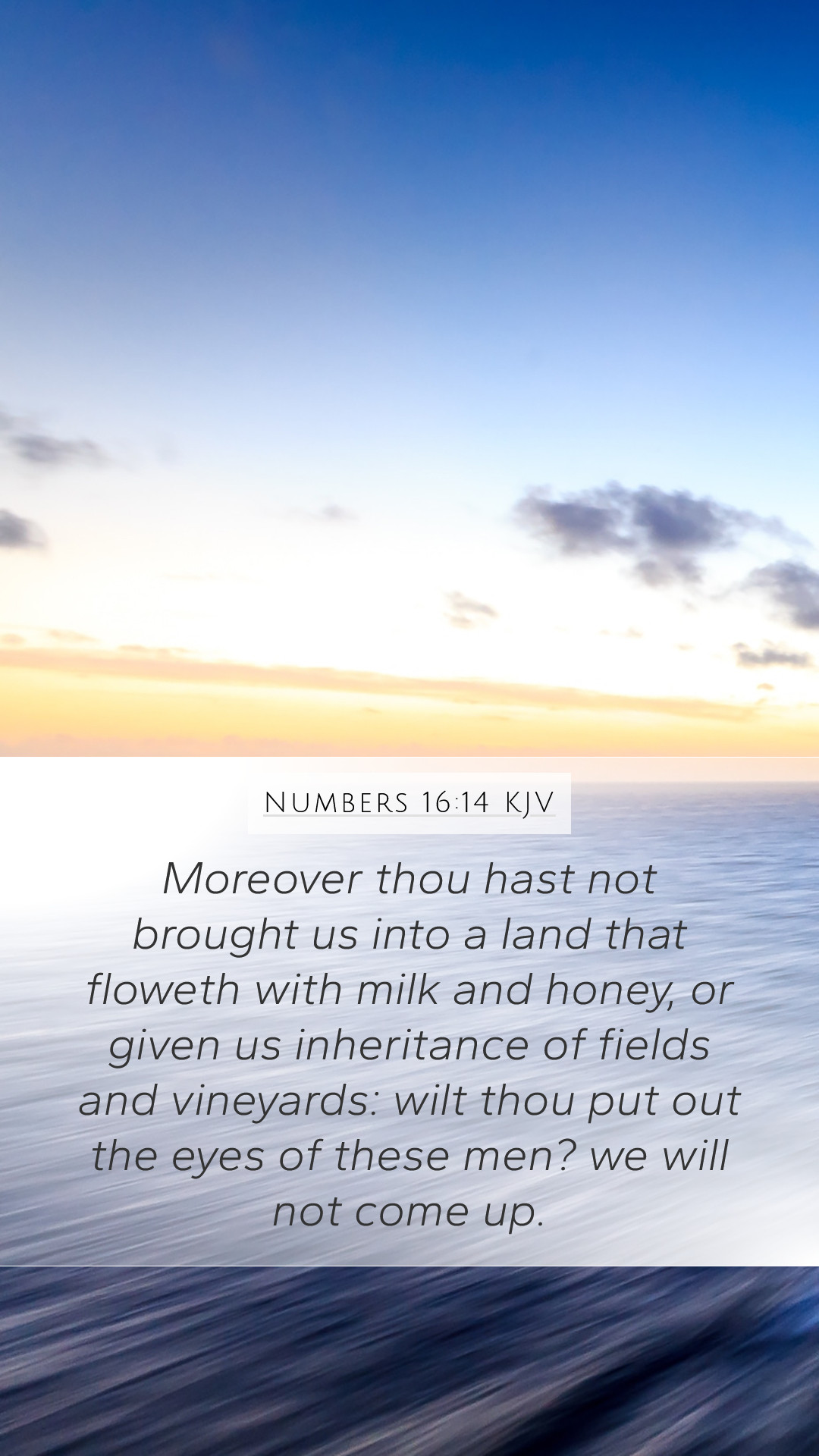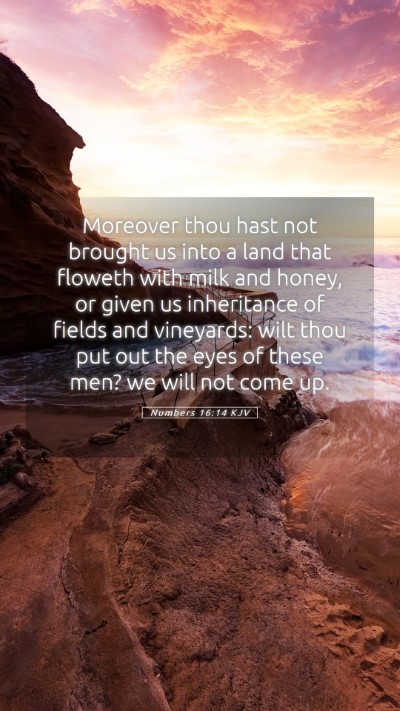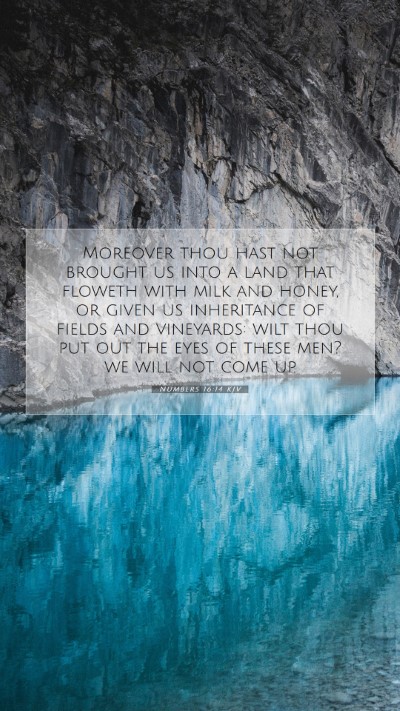Understanding Numbers 16:14
Numbers 16:14 states, "And thou hast brought us up out of a land that floweth with milk and honey, to kill us in the wilderness, except thou make thyself altogether a prince over us." This verse reflects a moment of tension and rebellion during the Israelites’ journey through the wilderness, specifically highlighting the complaints against Moses and Aaron by Korah and his followers.
Bible Verse Meanings
This verse encapsulates the heart of rebellion amidst the Israelites. It serves as a significant point in understanding how the people of God expressed their grievances during their journey. They are seen here accusing Moses of leading them into a barren land, contrary to God's promise of a prosperous inheritance.
Contextual Analysis
- Historical Context: This passage occurs during a time of intense civil unrest, as the Israelites were disgruntled with the leadership appointed by God.
- The Leadership Challenge: Korah, along with Dathan and Abiram, challenges the authority of Moses and Aaron, seeking to undermine their leadership.
- Symbolism of Land: The reference to "a land that floweth with milk and honey" symbolizes the promised land—a place of abundance and prosperity which the people longed for.
Bible Verse Interpretations
Interpreting this verse allows us to understand the deeper meaning behind the Israelites' words. They equate their physical circumstances with their spiritual standing, expressing discontent not only with their provisions but also with their leaders who they believe are responsible for their plight.
Matthew Henry’s Commentary suggests that this complaint reveals the people’s ingratitude and a lack of faith in God’s promises. They forget the miraculous deliverance from Egypt and their covenant with God.
Insights from Commentaries
- Matthew Henry: He emphasizes the importance of remembrance in faith, suggesting that the Israelites failed to acknowledge the goodness of God in their freedom as well as the covenants made with their ancestors.
- Albert Barnes: His analysis points out the stark irony in their complaints, illustrating that they were envious of Korah's descent and privileges while forgetting their own deliverance from oppression.
- Adam Clarke: He notes that the phrase "make thyself altogether a prince over us" reflects a craving for earthly leadership and autonomy rather than spiritual guidance.
Applications of Numbers 16:14
This verse serves as a reminder of the dangers of dissatisfaction and rebellion against God-ordained authority. It encourages readers to reflect on their attitudes when faced with hardship and the tendency to forget past blessings. How can we apply this to daily life?
- Self-Reflection: Consider your responses to leadership and authority in your life.
- Gratitude Practice: Regularly reflect on the blessings and promises of God.
- Community Support: Discuss with your Bible study group about the importance of unity and faith amid struggles.
Cross References
- Exodus 16:3: Complain against Moses’ leadership and longing for the comforts of Egypt.
- Numbers 14:2: The people expressing a desire to return to Egypt amidst fear.
- Psalms 106:24: Reflecting on the rebellious tendencies of the Israelites.
Conclusion
In summary, Numbers 16:14 provides profound insights into the nature of human dissatisfaction and rebellion against divinely ordained leadership. Through careful examination and commentary, we can find valuable lessons about faith, gratitude, and the importance of recognizing God’s past provisions. Engaging with such scriptures in Bible study groups or online Bible studies can enrich our understanding and deepen our spiritual growth.


